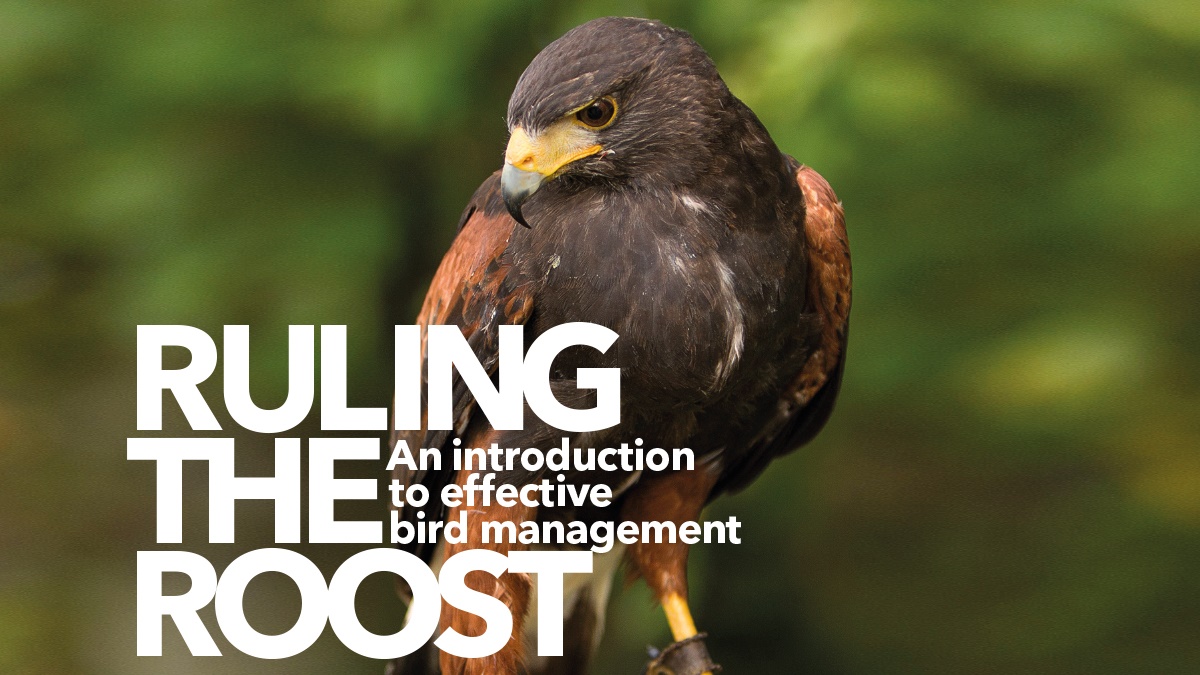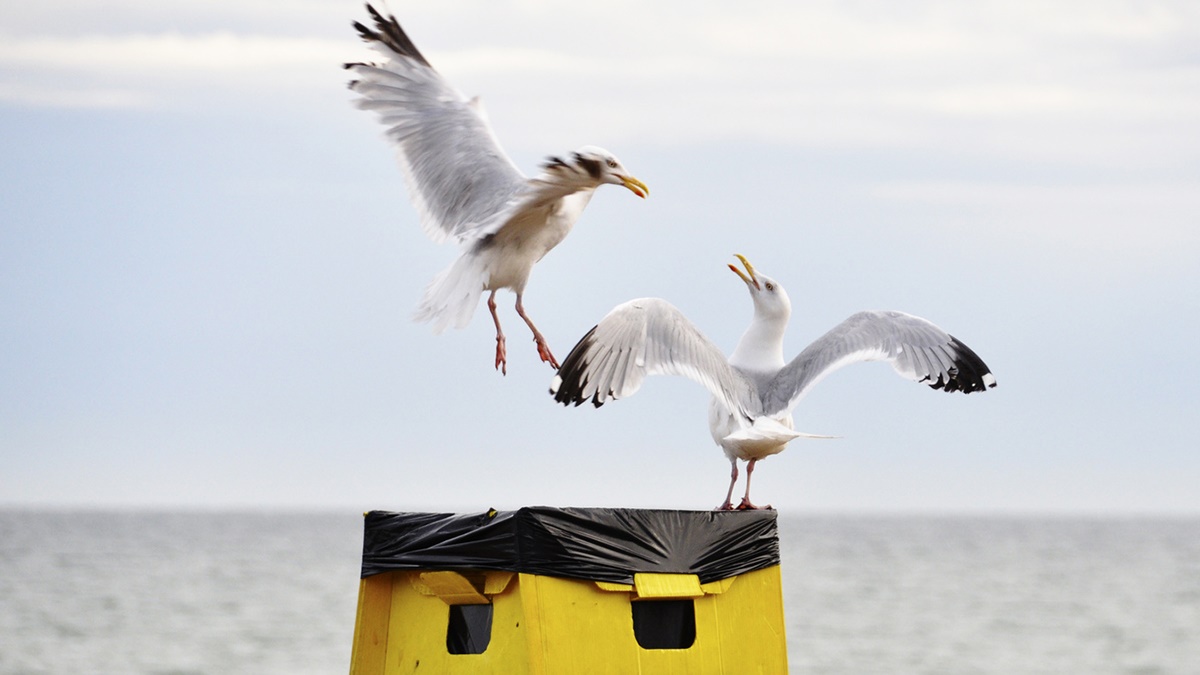Technical | PPC92 September 2018
Bird management is a tricky but crucial arm of public health pest control and potentially a huge growth area for a professional servicing company willing to learn. One BPCA member company that has built its business around bird solutions is NBC Environment. We asked Managing Director, John Dickson, to give us a back-to-basics look at all things bird control.

Even the smallest bird can potentially cause serious complications to business with significant cost, as all UK birds, their young and nests are protected by law under the Wildlife and Countryside Act 1981. Some birds (schedule 1) are protected further, and it is an offence even to disturb them while they are nesting.
It is a common misconception that birds such as pigeons and crows, often referred to as pest species, are not protected. However, under the General Licence, if an authorised person observes the conditions stated within the licence, they may kill or take certain species listed. Failure to obey these conditions puts the individual at risk of up to a £5,000 fine or six months in prison.
Nuisance bird issues
Nuisance birds, especially pigeons and gulls, are known to cause a variety of issues including:
- Nesting in or on buildings – clogging drains and flues, encouraging insect infestation.
- Noise – some bird species are very loud, for example, gull calls can be disruptive to business or residential areas.
- Ground-nesting – ground-nesting bird species can cause significant development delays and costs if not managed correctly or legally.
- Common problem bird species that come into conflict with businesses and organisations are pigeons, gulls, Canada geese, starlings and corvids (crows, rooks, ravens, jackdaws) which create health and safety issues, depositing bird mess and creating destruction wherever they go.
The legislative nuances relating to birds are highly complex, and it is advisable to commission a survey from an experienced bird expert. They can put a mitigation plan in place to ensure operations are approved and legal, which will provide auditable evidence safeguarding your project/site.

Bird management solutions
A broad range of bird management solutions are available with measures that include deterrents such as (non-lethal) falconry and laser systems to modify behaviours and encourage birds not to settle at particular sites.
Preventative solutions may include:
- Bird netting
- Bird spikes
- Electric bird wire
- Non-toxic bird gel
- Laser deterrents.
Bird deterrent solutions may include:
- Falconry response – these programmes are a live visual deterrent to scare birds from an area. The presence of a hawk or falcon quickly makes an area undesirable to nuisance birds and encourages them to establish a new pattern of behaviour away from your site.
- Egg and nest removal – occasionally lethal forms of bird control are required however it is wise to use this as a last resort as there are a wide range of highly effective non-lethal methods available.

What to do?
Although anyone is able to install bird proofing, it is recommended to seek advice and ensure the person installing the solution has a good understanding of bird behaviour. They also need to be able to install the solution correctly, which will increase the effectiveness of the deterrent.
In some situations, a preventative measure may not be effective or practical, and it may be possible to carry out bird control operations under the General Licence which can be relied upon if the following criteria are met:
- Good reason – preserve public health or public safety, prevent serious damage or disease or light safety
- You are authorised to do so by the owner or occupier of the land or property
- The owner or occupier is satisfied that appropriate non-lethal methods of resolving the problem such as scaring and proofing are either ineffective or impracticable.
Licence conditions vary for England, Scotland and Wales and are issued by governing bodies such as Natural England, Scottish National Heritage and the Welsh Assembly. There are a variety of licences available, and it is important you know which one you are operating under and the regulations attached.
A limited number of bird species are included under the General License – we encourage you to consult with Natural England or the appropriate body to ensure suitable bird control methods are used to meet their guidelines.
We always recommend calling an expert if unsure of the law or the safest and effective solution to use.
Looking for a BPCA member to help bird control?
The BPCA Find a pest controller tool isn’t just for members of the public in pest distress. If you want to subcontract out to a member you can find a local member to help you out.
bpca.org.uk/find
 John Dickson
John Dickson
NBC Environment
September 2018 | PPC92

Source: PPC92